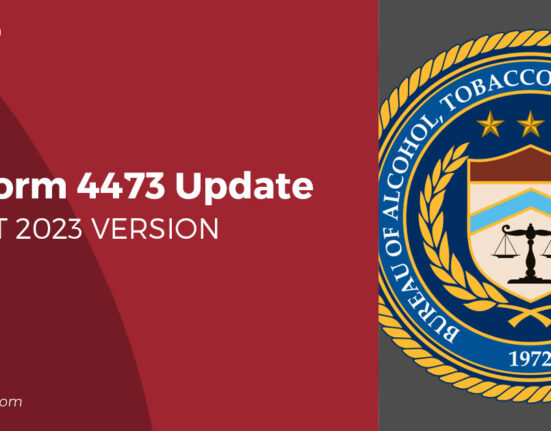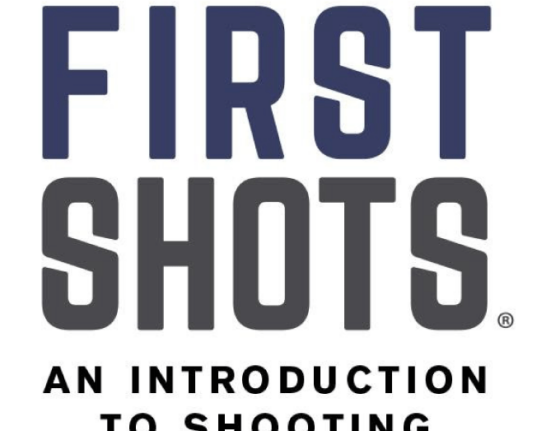Your Action Plan For Handling Bad Reviews Online (Whether Your at Fault or Not!)
By: Hannah Stonehouse Hudson, NSSF
The internet never forgets and screenshots truly never go away. You cannot just erase what occurred, take back what an employee did or said or delete what was posted, even if you would love to step back in time and pretend nothing ever happened. Businesses and brands have been ruined by one small mishandled internet snafu, and it often starts with a bad review.
There are two types of situations resulting in your company getting some bad reviews online. One is when you have legitimately screwed up, while the other is when people are being vindictive due to some sort of situation out of your control. Let’s talk about each.

You Really Did Something Wrong
You may not think it could happen to you, nor your company, but sometimes one misworded statement can create a social media crisis that gets completely out of hand. One of two things can happen in such a situation: You can either manage it immediately and take control of it (and may be even grow from it as a business), or you can try and cover it up and possibly destroy your business as the internet vigilantes come out to play—and believe me, they will.
Here are the first steps to take if you’re receiving bad reviews for something that truly was your fault:
- Don’t try to cover the incident up and pretend it didn’t happen. If you do try to cover up a post that was made or delete photos or videos that were the issue, the internet will come at you in droves. Every person looking for social media drama will be on your page creating more of it and bringing their friends along too. You do not want that. Contrary to popular belief, not all publicity is good publicity.
- If the reviews are warranted, apologize immediately and make sure the apology is genuine. Don’t say people should not be so offended, and certainly don’t say you really don’t think you should apologize but you will anyway because people are demanding it. If an apology is done correctly and immediately, the public will actually rally around you and spread the word that you addressed the situation immediately and took action.
- If you don’t know if an apology is warranted but there is definite internet buzz (including bad reviews) surrounding an incident and your company, make a statement saying, “We’re looking into it.” Always acknowledge a situation if there is a growing internet discussion about it. People will be looking for information on what has occurred, and if they don’t get information from you, they’re going to get it from someone who probably doesn’t have all the facts.
- Once you have all the facts, create a formal, canned response with truthful information about the event that you can cut and paste into any comment section. Always respond with objective facts. The thing that attracts people most to a social media crisis is drama, so it is essential you do not engage those who are trolling for a fight for no other reason but the fight. (We’re going to talk about dealing with trolls in the next column.) Responding with facts and a consistent response makes them go away faster.
- Take nothing personally. Every comment someone leaves is a reflection of what is going on in their world. As soon as you take whatever they say to heart, you will start lashing out, and that will only make things worse. If you find yourself starting to take things personally, walk away from your computer and make someone else copy and paste your canned response.
It’s a sign of the times that people look to social media first for news and responses to events. If there is no response, they’ll comment on that. If a response looks like a coverup, they’ll comment on that too. Most important to remember in all of this is that people will make up information if they do not see something directly from the organization. Thus, if a response is factual, to the point and as positive as possible, that will help spread the truth while helping ensure sure false information is not created and spread (and it can also actually create trust with viewers and potential and current advertisers).
You Didn’t Do Anything Wrong but You’re in the Hotseat Anyway
If the bad reviews are unwarranted and you did nothing wrong—you weren’t factually wrong, you weren’t politically incorrect, insensitive, etc.—take the following steps:
- Comment on the review in an objective, non-combative way. “We don’t seem to have record of you as a customer. Could we contact you for more information?” Show that you are making an effort to fix the situation, even if there is no situation. Most of the time, such a response indicates to other people that there is no actual cause for a bad review.
- No matter what they say, keep it objective and impersonal. Companies that and individuals who make it personal are the ones who get themselves in trouble.
- If your response is still met with combativeness and you do not run a governmental page, in most cases you can just delete and ban posters who are obviously looking for attention for the sake of attention.
Turn Off Reviews
In either situation, never be afraid to simply shut off reviews until the situation is figured out and addressed. To turn off reviews on Facebook, go to Page settings, then Templates and Tabs, then Tabs. You can turn reviews on and off there.
It’s Not the End of the World
Bad reviews on social media are not the end of the world if you respond quickly and truthfully to mitigate any damage that has been done to your reputation. Above all, keep it professional and objective, even if the reviewer is not. Your audience and future customers are watching.
Related Articles: How to Create A FFL Disaster Preparedness Plan
Related Articles: What’s New at GunBroker.com: New eFFL system: Put your FFL on File
Related Articles: Accountability in Leadership | Advice from NSSF
About the Author
Hannah Stonehouse Hudson is a keynote speaker, coach and social media communications strategist. As the owner of HSH Communications, she helps people and organizations reach the most people on social media, and she is the instructor of the popular online course How to Get the MOST Eyes on Your Social Media Content.
Content originally published on nssf.org. Used with permission.






